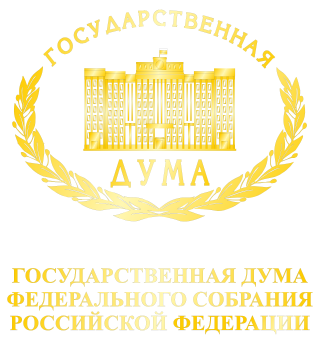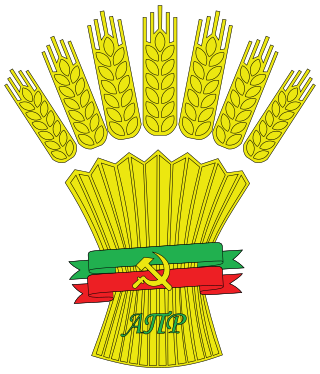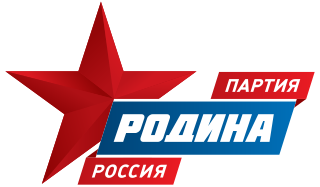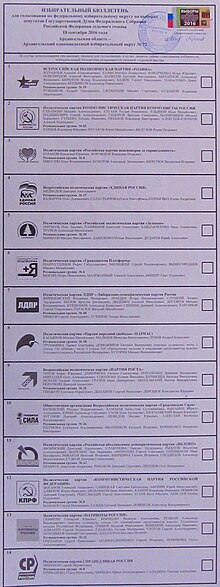The Russian United Democratic Party Yabloko is a social-liberal political party in Russia. The party consequently participated in the elections of deputies of the State Duma of the Federal Assembly of the Russian Federation of all eight convocations. Until 2003, Yabloko was represented by a faction in the State Duma and later until 2007 by individual deputies. In March 2002, the party became a full member of the Liberal International, and since November 1998, it had been in observer status. The founder of the party Grigory Yavlinsky is an honorary vice-president of the Liberal International and winner of its Prize for Freedom. Since 2006, Yabloko has been a member of the Alliance of Liberals and Democrats for Europe (ALDE). As of 2021, the party was represented by factions in 4 regional parliaments of the Russian Federation. In addition, members of the party were deputies of 13 administrative centers of the subjects of the Russian Federation, 183 representatives of the party were municipal deputies in Moscow, 84 in Saint Petersburg.

Grigory Alekseyevich Yavlinsky is a Russian economist and politician. He has held numerous positions in the Soviet and Russian governments across different levels, including in the State Duma.

The Union of Right Forces, was a Russian liberal-conservative political public organization and former party, initially founded as an electoral bloc in 1999 and associated with free market reforms, privatization, and the legacy of the "young reformers" of the 1990s: Anatoly Chubais, Boris Nemtsov, Sergey Kiriyenko and Yegor Gaidar. The party officially self-dissolved in 2008. Nikita Belykh was the party's last leader from 2005 to 2008.
Within Russian political parties, liberal parties advocate the expansion of political and civil freedoms and mostly oppose Vladimir Putin. In Russia, the term "liberal" can refer to wide range of politicians—simultaneously to Thatcherism/Reaganomics-related pro-capitalism conservative politicians, to centre-right liberal politicians and to left-liberal politicians. The term "liberal democrats" is often used for members of the far-right nationalist party, the Liberal Democratic Party of Russia. There are Russian opposition and pro-government liberal political parties in Russia. Pro-government liberal politicians support Putin's policy in economics.

The State Duma, commonly abbreviated in Russian as Gosduma, is the lower house of the Federal Assembly of Russia, while the upper house is the Federation Council. The Duma headquarters are located in central Moscow, a few steps from Manege Square. Its members are referred to as deputies. The State Duma replaced the Supreme Soviet as a result of the new constitution introduced by Boris Yeltsin in the aftermath of the Russian constitutional crisis of 1993, and approved in a nationwide referendum.

The Agrarian Party of Russia was an agrarian political party in Russia. Founded in February 1993, it was among the earliest parties in the Russian Federation.

Parliamentary elections were held in Ukraine on 26 March 2006. Election campaigning officially began on 7 July 2005. Between November 26 and 31 December 2005 party lists of candidates were formed.

The All-Russian Political Party "Rodina" is a nationalist political party in Russia. It was a coalition of thirty nationalist groups that was established by Dmitry Rogozin, Sergey Glazyev, Sergey Baburin, Viktor Gerashchenko, Georgy Shpak, Valentin Varennikov and others in August 2003. The party's ideology combines "patriotism, nationalism, and a greater role for the government in the economy", and is described as pro-Kremlin. Its headquarters is located in Moscow.

Legislative elections were held in Russia on 2 December 2007. At stake were the 450 seats in the 5th State Duma, the lower house of the Federal Assembly. Eleven parties were included in the ballot, including Russia's largest party, United Russia, which was supported by President of Russia Vladimir Putin. Official results showed that United Russia won 64.3% of the votes, the Communist Party of the Russian Federation 11.6%, the Liberal Democratic Party of Russia 8.1%, and Fair Russia won 7.7%, and none of the other parties won enough votes to gain any seats.

A Just Russia – For Truth, formerly A Just Russia (SR), also referred to as Fair Russia, is a social conservative and social-democratic political party in Russia. The party is considered to be part of the "systemic opposition", but is generally sympathetic to the agenda of incumbent president Vladimir Putin, including his foreign policy.
Democratic Russia was the generic name for several political entities that played a transformative role in Russia's transition from Communist rule. In 1991–1993, the Democratic Russia Movement was the largest political organization in the country and Boris Yeltsin's base of political support.
A bloc party, sometimes called a satellite party, is a political party that is a constituent member of an electoral bloc. However, the term also has a more specific meaning, referring to non-ruling but legal political parties in a one-party state as auxiliary parties and members of a ruling coalition, differing such governments from pure one-party states such as Nazi Germany and the Soviet Union, although such minor parties rarely if ever constitute opposition parties or alternative sources of power. Other authoritarian regimes may also have multiple political parties which are nominally independent in order to give the appearance of political pluralism, but support or act in de facto cooperation with the government or ruling party.

Sergey Sergeyevich Mitrokhin is a Russian politician.

The elections for the 5th convocation of the Moscow City Duma took place on 11 October 2009. Out of the 35 deputies, 18 were elected through party lists using proportional representation, while the remaining 17 were elected from single-member constituencies. In order to secure seats in the City Duma through proportional representation, parties needed to surpass a 7% popular vote threshold. The term of office for the newly elected City Duma members is five years, which was extended from the previous four-year term.

A popular front is "any coalition of working-class and middle-class parties", including liberal and social democratic ones, "united for the defense of democratic forms" against "a presumed Fascist assault". More generally, it is "a coalition especially of leftist political parties against a common opponent".

The Civic Union was a political alliance in Russia.

Legislative elections were held in Russia on 18 September 2016. On 10 June 2017 Vladimir Zhutenkov resigned. On 14 June, the Central Election Commission scheduled a by-election in the Bryansk constituency for 10 September 2017.

The election for the 6th convocation of the Moscow City Duma took place on 14 September 2014, which coincided with the United Voting Day. The elections were conducted using the first-past-the-post voting system, and a total of 45 deputies were elected in 45 single-member constituencies from a pool of 258 candidates. The term for the new Duma was set at five years. The voting process occurred across more than 3,500 polling stations throughout the city. The final results of the election were announced on September 16, 2014.
The People's Patriotic Union of Russia was a political association in Russia, created on August 7, 1996 by political parties and public organizations that supported Gennady Zyuganov in the presidential elections.
The 2022 Sakhalin Oblast Duma election took place on 9–11 September 2022, on common election day. All 28 seats in the Oblast Duma were up for reelection.















